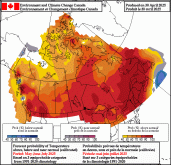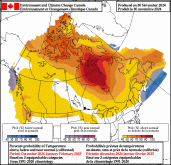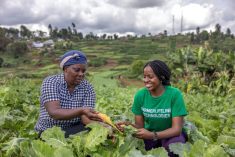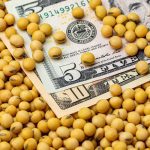Draft regulations for Canada’s new carbon market show Canadian farmers won’t receive credit for removing any greenhouse gas emissions (GHG) from the atmosphere prior to 2017.
Federal Environment Minister Jonathan Wilkinson on Friday announced the offset market, to be known as the Federal Greenhouse Gas Offset System. A 60-day public consultation period on draft regulations runs from now until May 5.
Under the proposals released Friday, producers won’t be getting any credit for being zero-till, or having perennial forage coverage — particularly if those efforts were completed prior to 2017.
Read Also
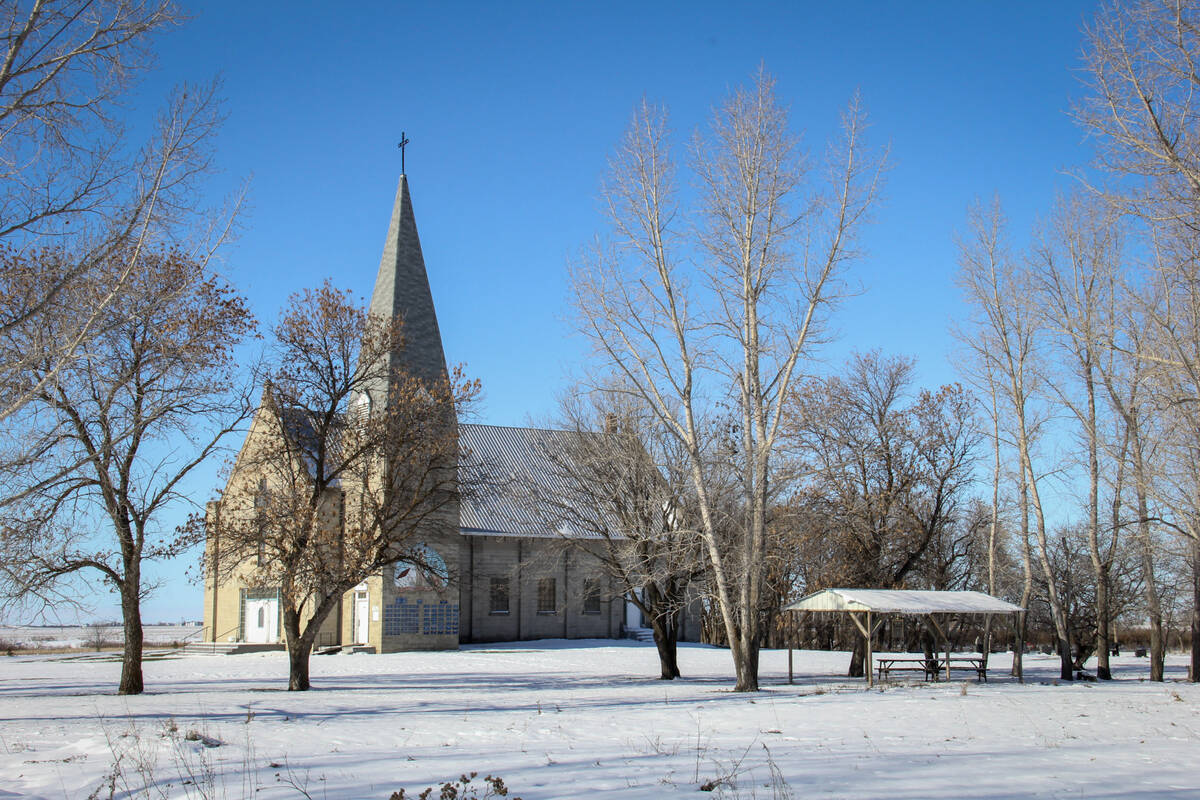
Prairie forecast: All aboard the temperature rollercoaster
A series of lows, and the cold and warm air masses that come with them, will make for a temperature rollercoaster on the Prairies.
The federal government that year released its plan to put a national cost on carbon. In the eyes of Environment and Climate Change Canada (ECCC), any efforts to reduce emissions that took place after that date can be considered something that would not have taken place in the absence of a price on carbon, or are simply cases of “business as usual.”
In other words, projects started prior to the beginning of 2017 won’t be eligible for carbon credits under the federal program, because federal officials want to see additional efforts taken to reduce emissions.
Ottawa is looking at projects that can be quantifiable, unique and permanent to qualify for receiving credits.
Regulated facilities that exceed their emission limits will then be able to compensate for excess emissions by purchasing those federal offset credits being created by activities “not already incentivized by carbon pollution pricing.”
Essentially that means no double dipping for producers will be available. For example, the draft regulations suggest farmers won’t able be able to receive carbon credits from the new Clean Fuel Standard by providing ethanol, and then register that project as a new program to receive additional credits.
While the draft regulations being released will apply broadly to all of the projects in the offset system, it will be spring when work on drafting protocols for specific projects begins.
Producers can apply to register for credits once final regulations and protocols for the project type are developed. Realistically, the federal carbon market won’t likely be active in 2021.
Four protocols are being developed initially, and federal officials are hopeful that work can be completed on those by the fall.
Of the four protocols being created, only the one for “enhanced soil organic carbon” will appeal to producers. Protocol developed here will look at the “adoption of sustainable agricultural land management activities, to reduce emissions and enhance carbon sequestration in soils.”
Federal officials say protocols for developing a carbon market related to livestock feed management, avoiding grassland conversion and manure management will be undertaken in the future.
Provinces such as B.C., Alberta and Quebec with existing carbon markets in place will be able to continue using those protocols and markets; federal officials hope the national system will compliment provincial ones. Saskatchewan is currently in the midst of developing its own carbon market.
In another effort to avoid double-dipping and to ensure only new projects are rewarded, producers won’t be able to enlist the same project for carbon credits simultaneously in a provincial and federal market.
Many of the draft regulations were telegraphed by ECCC. At the end of February, a senior official briefed attendees at the Canadian Federation of Agriculture’s (CFA) annual general meeting on many of the basics. Discussion papers outlining some of the output-based system were published in 2019 and 2020.
Days after that event ended, the CFA and other producer groups formed the Agriculture Carbon Alliance (ACA), to “ensure that Canadian farmers’ sustainable practices are recognized through a policy environment that maintains their competitiveness, supports their livelihoods, and leverages their critical role as stewards of the land.”
It intends to lobby ECCC directly “to build consensus around environmental best management practices, and practical options for offsets, rebates and exemptions.”
Statistics Canada found that Canada’s low carbon economy was already generating over $66 billion and jobs for more than 317,000 Canadians in 2018.
— D.C. Fraser reports for Glacier FarmMedia from Ottawa.





